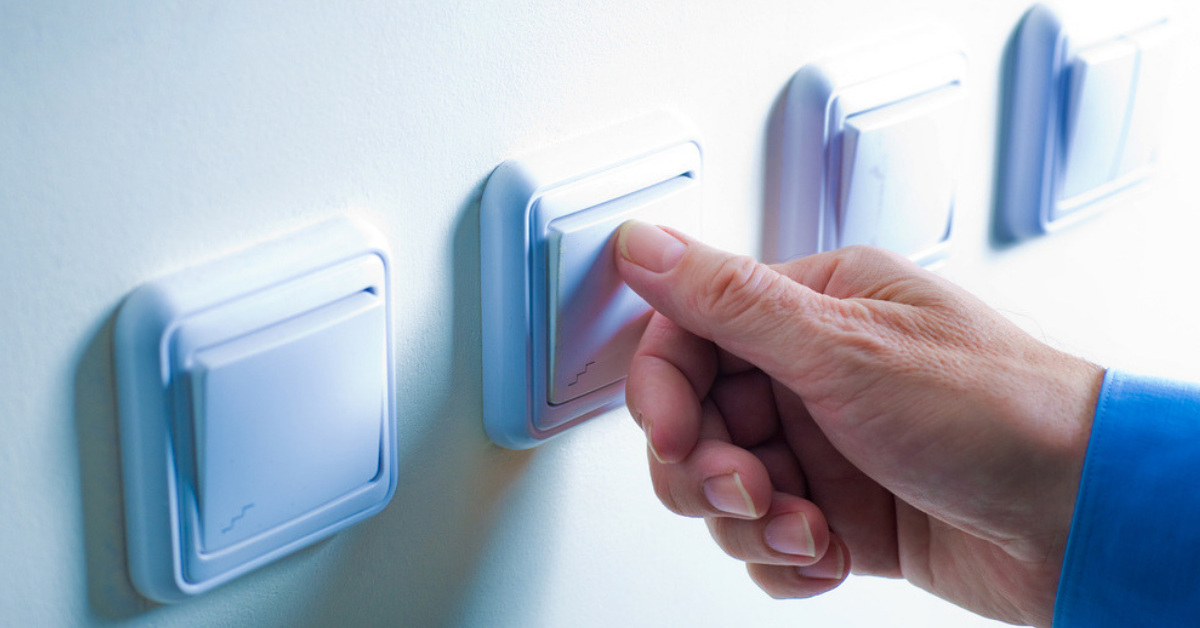 Photo: Housing.com
Photo: Housing.comSwitch Energy Supplier
You’ll likely have heard this suggestion countless times before, but it really can help. Energy costs are constantly in flux and tend to keep increasing, and there are so many different providers to choose from, all competing for customers. The good thing about this is you’re going to be able to benefit from this constantly changing battlefield so make sure you do your research into other providers. You might find a new energy supplier that offers both lower monthly costs and added benefits such as a free smart meter, for example. But you may also be interested in switching supplier for ethical reasons too, based on the environmental impact of a particular company. Investigate the market and decide on the right choice for you before making the switch, and you could be enjoying a nice boost to your wallet every month.
New Light Bulbs
If you’re still using old, traditional incandescent bulbs, you may want to think about spending some time replacing these to help save a significant amount of energy and in turn, money. Switching to low-energy, LED or halogen bulbs can save you between 25% to 80% energy from your lights. These types of lightbulbs are also said to last much longer, and this can be up to 25 times longer than a standard bulb. Smart light bulbs using LED technology may remain left on at the wall and triggered via an app, but due to their design, they consume far less energy than the constant flicking on and off of a traditional bulb.
Update Your Boiler
Replacing your boiler can feel like a bit of a pain, and the initial costs and installation fees can be very unsavoury. However, when you consider the immense long-term savings, you can make per year with a more efficient boiler, it is arguably worthwhile. Getting a new boiler for your home from Boiler Central is a great choice and could see you savings hundreds of pounds per year on your heating bills. If your boiler is quite old, it may be inefficient and might be at risk of failing altogether. Replacing your boiler before this happens is a smart choice as you could experience delays and higher costs with an emergency replacement fitting.
Better Appliances
Using a smart metre in your home is a really useful way of discovering which devices are consuming the most power. Devices such as kettles, washing machines and tumble dryers, basically anything that uses electricity to heat things up quickly, are the top culprits for wasting energy. Figure out what items are using up your electricity the most and consider swapping them out for more energy efficient models. Keep an eye on the energy efficiency labels on most white goods for an initial idea of how much better your new appliances will be.
Insulate Your Home
Poor insulation is a similar issue to the gaps in windows and doors letting in draughts. However, insulation deals with the heat that escapes through your homes surfaces like walls, roofs, and flooring. Laying proper, high quality loft insulation, as well as installing insulated cavity walls can save you a lot of money on your heating bill every year. Most homes should have some form of insulation of course, as it’s a pretty standard thing to have in modern homes. However, you can top up your insulation if yours isn’t thick enough. It’s suggested that the insulation in your loft, for example, is around 270mm in thickness.
Clean Radiators
One reason that our heating costs could be too high, is that our radiators aren’t operating to the best of their abilities. One reason for this is them being unclean. Cleaning the outside of your radiator by removing cobwebs and dust will allow more heat to radiate around your room—use a specialised radiator brush for this task. This will boost their efficiency, warming your home up faster, and therefore they won’t need to be on for as long, ultimately using less energy.
Retain Heat
Especially during the cold winter months, you’re going to want to reduce the amount of heat escaping your home from gaps under doors and via poorly designed or damaged windows. Spend some time assessing your home and feeling for draughts around these spaces. Once you’ve identified the places that seem to be getting colder, figure out some ways to reduce the amount of heat escaping your home. You’ll end up save money due to not needing the heating on for as long, and you’ll also feel much more comfortable by removing these draughts.
By Energy Live News








